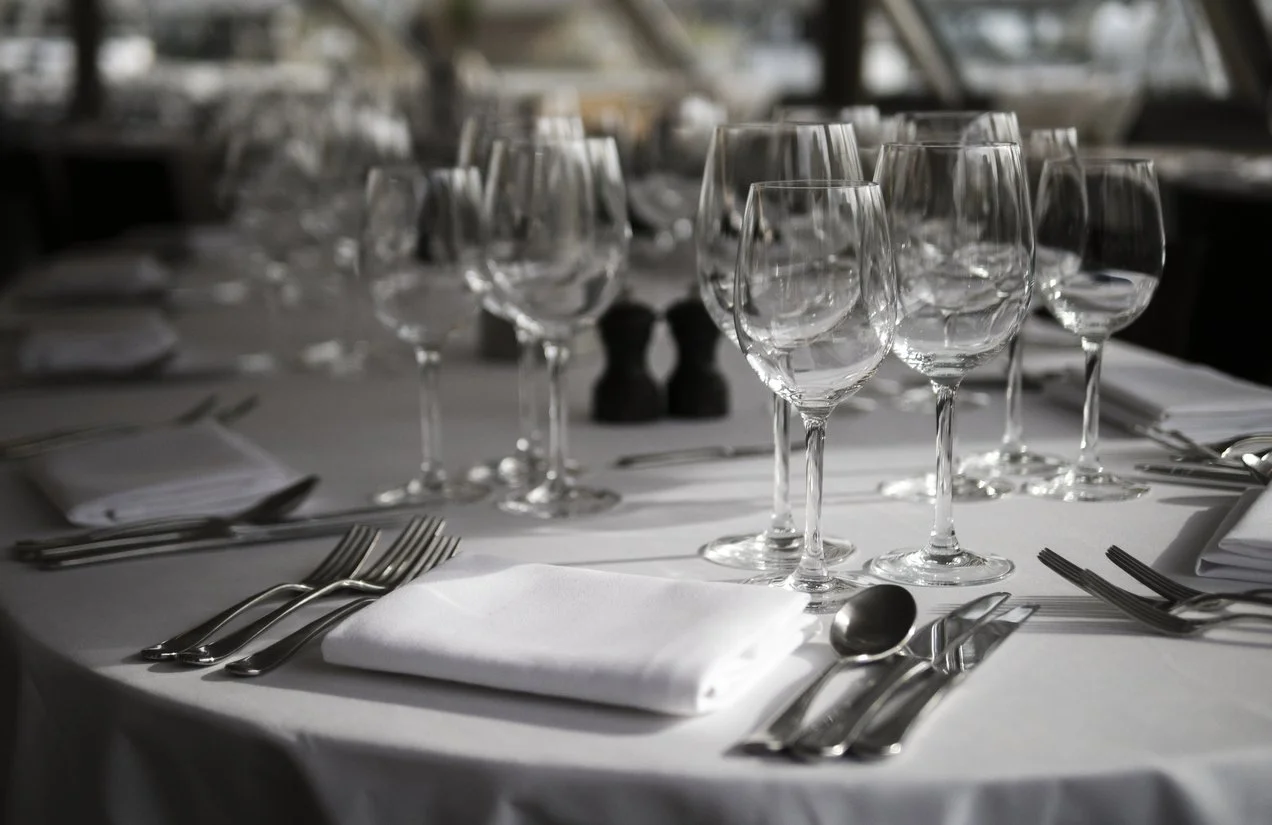Table Settings: Lazy vs Luxury
It is such a lovely Sunday morning! Do you have any luxury plans today? Do let me know if you end up frolicking around somewhere gorgeous.
The general election is looming, and I still can't fathom why no parties have included a pledge to standardise table settings in restaurants!
Why is it so important? Well, if you caught wind of my reel (mini-rant) earlier this week on incorrect table settings, you'll understand!
Maybe I should stand in The Manners Party...
Let's set the record straight
Table settings are fascinating because of the inherent status they have projected for centuries.
I'd like to cover the basics of table settings so we are under no illusion as to what is correct and proper, and what's just plain rubbish.
The importance of table settings
In the post-classical period, there wasn't a dining room as such. Tables were set in the great halls of the castles if not on something like a communal bench. Before this, people (the rich) usually ate in their bedroom chambers. Dining on a table became the ultimate sign of status as monarchs got wealthier in the Middle Ages, where you might find a 'top table' for the most important person, which was usually The King or Queen. The same is true even now of weddings where the couple's family stand out from the rest.
King Louis XIV dining with Moliere in public display.
Wash your dirty linen for the public
The linen cloth draped over tables was a hugely influential factor in the development of a properly set table. Linen being as white as possible was key (off-white in reality due to bleach not existing at the time). Linen was so valuable that even in the 17th century it was often the first thing mentioned in one's will because of how luxurious and expensive it used to be.
Linen could also be designed in such a way on the table to distinguish the most senior guests.
However close my word is to gospel, any disagreements over table settings are probably not worth going nuclear on unless you're inviting me to your dinner party, in which case, I expect your butler's gloves on when setting the table.
There is a lot more detail and instructive guides on table settings in my upcoming book Just Good Manners.
Yours in sincerity,
William Hanson




